Principal Investigators
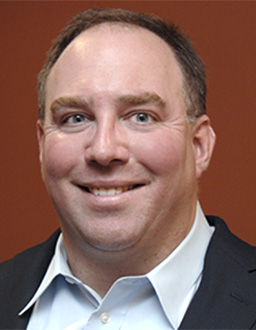 |
Joseph Italiano is the James and Thea Stoneman Associate Professor of Surgery in the Field of Vascular Biology at Boston Children’s Hospital and Harvard Medical School. He was awarded his Ph.D. in Cell Biology from Florida State University under the supervision of Thomas Roberts. His thesis focused on how filament assembly and bundling contributes towards cell crawling in the amoeboid sperm of Ascaris. In 1998, Dr. Italiano transitioned into hematology-based research as a postdoctoral fellow under John Hartwig at Brigham and Women’s Hospital, where he began studying how blood platelets are produced, which remains a focus of his work as a principal investigator in the Vascular Biology Program at the Boston Children’s Hospital.
|
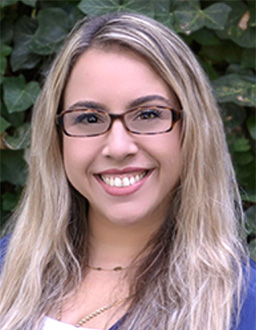 |
Kellie Machlus, PhD is Assistant Professor at Boston Children’s Hospital and Harvard Medical School. She obtained her PhD at the University of North Carolina at Chapel Hill under the supervision of Dr. Alisa Wolberg, studying the pathophysiology of venous thromboembolism. She then did her postdoctoral fellowship with Dr. Joseph Italiano at Brigham and Women’s Hospital, studying megakaryocyte biology. Dr. Machlus is now a Principal Investigator in the Vascular Biology Program at Boston Children’s Hospital, where her lab is focused on identifying molecular mechanisms of megakaryocyte development that lead to enhanced platelet production, with specific emphasis on how inflammation affects megakaryocyte function. |
Lab Members
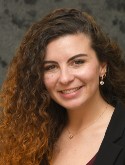 |
Estelle Carminita Estelle received her MSc in human pathology from Aix-Marseille University in France. She started her PhD in 2018 in the lab of Professor Christophe Dubois at the Research Centre of Cardiovascular and Nutrition where she focused on studying the involvement of neutrophils in thrombosis and cancer associated-thrombosis. She joined the Italiano lab in February 2022 to study megakaryocyte biology, MK interactions with other bone marrow cells, and to identify cellular triggers of proplatelet formation. Estelle is also interested in determining if platelet reactivity can be explained by bone marrow reprogramming that occurs during systemic inflammatory disease.
|
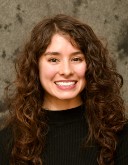 |
Virgina Camacho Virginia Camacho (Ginny) received her PhD at the University of Alabama at Birmingham in the lab of Robert Welner where she focused on Treg regulation of the bone marrow microenvironment and the application of T cell-based therapies in myeloid malignancies. Her goal is to dissect the effects of age-associated somatic mutations on megakaryocyte function in the context of aging and cardiovascular disease. Outside the lab Ginny enjoys reading, hiking, and cuddling with her puppy.
|
 |
Isabelle Becker Isabelle received her B.Sc. and M.Sc. in biomedicine from the University of Wuerzburg in Germany in the lab of Professor Bernhard Nieswandt at the Rudolf Virchow Center for integrative and translational Bioimaging. She joined the Italiano Lab in October 2020 to study the megakaryocyte cytoskeleton and mechanisms of proplatelet formation. In March 2021, she was awarded a Walter-Benjamin Fellowship by the German Research Foundation, in which she is aiming to identify how aberrant secretion of profibrotic cytokines by megakaryocytes is propagating myeloproliferative neoplasms such as myelofibrosis. Besides science Isabelle enjoys cycling with Maria, baking and spending time with friends (in Boston and Germany).
|
 |
Maria Barrachina Maria received her B.S. biotechnology degree from the University of Valencia, Spain, in 2014, followed by her M.Sc in R&D drugs from the University of Santiago de Compostela, Spain, in 2015. After that, she conducted her Ph.D in the lab of Prof. Angel Garcia at Center of Molecular medicine and chronic diseases (CiMUS), Santiago de Compostela. During her Ph.D, she studied the effect of obesity on platelet reactivity using a combination of proteomic, biochemical and functional approaches in order to elucidate potential anti-atherothrombotic targets in this pathology. Moreover, she collaborated on other projects such as studying the CLEC-2 signaling pathway by phosphoproteomics, lipid rafts composition following CLEC-2 and GPVI activation and identifying novel inhibitors against GPVI and CLEC-2 receptors. Maria’s current work in the Machlus laboratory focuses on elucidating the role of fatty acids in megakaryopoiesis and platelet production. Apart from work, Maria spends her time doing some hobbies like going skiing with her husband, spinning(with Isabelle, and working on her garden at Victorian Fenway Gardens.
|
 |
Nathan Asquith Nathan received BS. in molecular and cellular biology from the University of Huddersfield, he worked in the biomedical sector for three years at British American Tobacco and Novartis. Following his time at Novartis, Nathan obtained his Ph.D in medicine biophysics from the University of Leeds within the laboratory of Professor Robert Ariëns at the Leeds institute of cardiovascular and metabolic Medicine. Nathan joined the Italiano lab March 2019 to continue the development of microfluidic devices to study how proplatelets are made and also to study the role of thiol isomerases in megakaryocytes. He is interested in using genetic editing of megakaryocytes to produce mature blood platelets that can carry therapeutic payloads.
|
 |
Rolf Bekendam Rolf Bekendam received his MD at the University of Groningen in the Netherlands and obtained his PhD in Vascular Pathology at Aix-Marseille University/INSERM under the supervision of Christophe Dubois (Aix-Marseille University) and Robert Flaumenhaft (Beth Israel Deaconess Medical Center). His PhD thesis investigated the role of protein disulfide isomerase (PDI) inhibition in models of thrombosis and evaluation of S-nitrosylation as a post-translational modification controlling thiol isomerases within the vasculature. Dr. Bekendam subsequently completed internal medicine residency at the Boston Medical Center and is currently a Hematology/Oncology fellow at Beth Israel Deaconess Medical Center. Rolf joined the Italiano lab in July 2022 and is interested in how megakaryocytes are involved in the pathophysiology of immune thrombocytopenia.
|
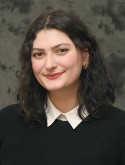 |
Clementine Payne Clementine earned her BA in Biology at Bryn Mawr College, Bryn Mawr Pennsylvania. She is currently working on experiments pertaining to platelet-derived extracellular vesicles (PEVs) particularly their drug uptake capabilities. Additionally Clementine studies thrombocytopenia induced by antisense oligonucleotides for the lab. She intends to further her scientific career by attending grad school in the fall of 2024.
|
 |
Daniela Freire Dani received her BS in Biomedical Engineering with a minor in Nanotechnology from Florida Institute of Technology and her M.S in Biomedical engineering with a specialization in biomaterials and biodevices from Arts et Métiers ParisTech, France. Her current research includes studying the role of fatty acids in megakaryopoiesis and platelet production, the use and fabrication of microfluidic devices to see the interaction of vascular networks and megakaryocytes, as well as how proplatelets are made.
|
 |
Emma Nikols Emma received her BA in Biochemistry and Molecular Biology from Bryn Mawr College. She joined the Italiano Lab in August of 2021 as a research assistant. Her current research includes platelet production in a bone marrow organoid model, the study of mechanisms of proplatelet formation, and development of genetic editing of megakaryocytes.
|
 |
Karen Guo Karen (she/her) received her B.A. in Biochemistry and Molecular Biology from Bryn Mawr College. She is interested in understanding the role of platelets and other immune cells in contributing to the development of cardiovascular diseases (CVD). Her current research projects involve studying the cellular mechanisms underlying the pathogenesis of atherosclerosis and chronic kidney disease, two diseases closely linked with CVD. |
